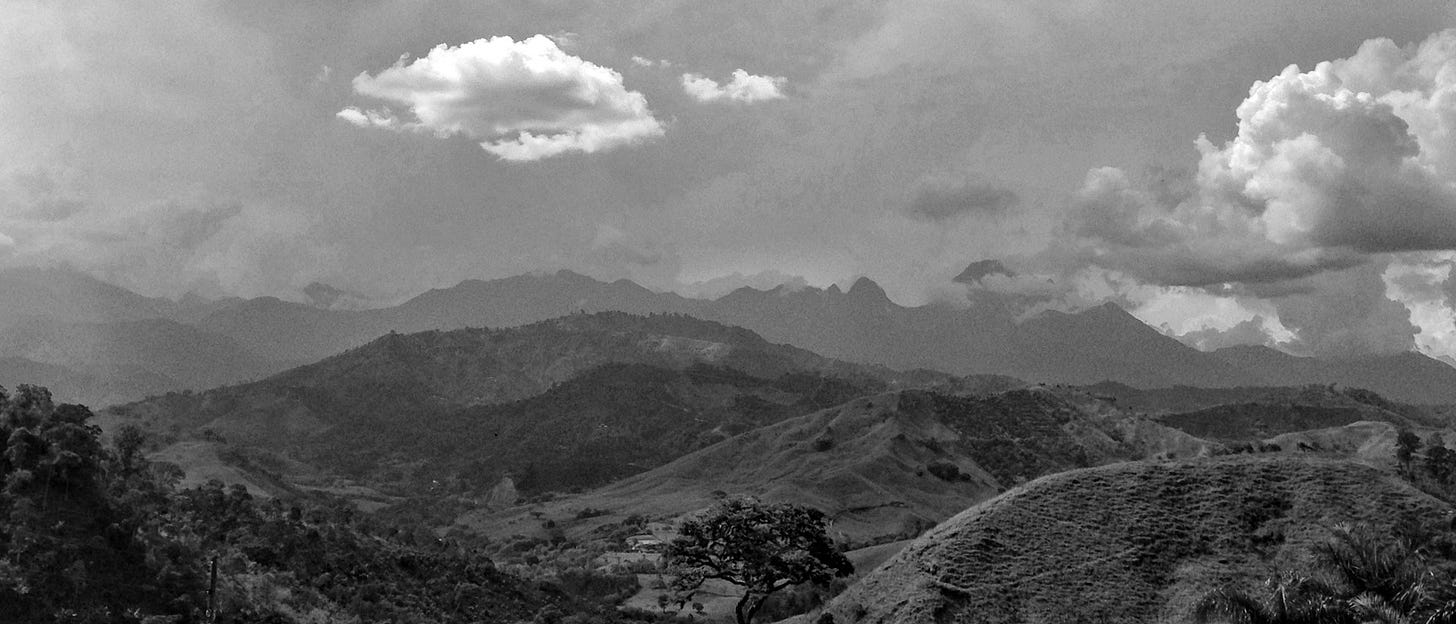Coffee News Roundup: Week Ending June 4th
This week, workers organize at Pavement Coffee and, surprising everyone, management accepts the union. Also, a horror movie sequel-like move as a coffee-killing fungus is brought back from the dead.
Hello and welcome to another Coffee News Roundup, where we round up the latest coffee news.
Not a lot going on this week, but we should start with the big story, as The Week In Coffee Unionizing goes front page.
Pavement Coffeehouse Could Become The First Unionized Cafe In Massachusetts - Via Eater Boston
“We have no intention of working to stop our staff members from organizing. If they have an established union to present to us, we will work with them from there.”
That statement, from Pavement Coffee Roasters owner Larry Margulies, shouldn’t be unusual. Organizers attempting to unionize the Boston-area chain’s 80-person workforce had written to Marguilies to ask the company’s leadership team not to interfere in their attempts, and to recognize the union if they were successful. Judging by previous coffee shop worker organizing efforts, the response from leadership was surprising.
“We will work together on this,” Margulies wrote in a subsequent statement shared with local NPR station WGBH. “While the unionization process is something that is new to us, and obviously there will be much news to share in the coming days, I believe that together, we will make Pavement Coffeehouse a better and more just place to work.”
Various Pavement employees, in interviews with GBH Newsand elsewhere, described working conditions that will be all too recognizable for coffee shop and service industry workers: low wages, long hours, top-down decision-making that excluded the people those decisions impacted, and pandemic-related safety concerns. Once official, the organizers plan to negotiate pay increases as well as more financial and managerial transparency.
“This is incredibly rare,” Mitch Fallon, a representative from the New England Joint Board UNITE HERE union told GBH News of the company’s decision to voluntarily recognize the nascent union. “We are so pleased that we're potentially looking at this outcome.”
“We definitely all were pretty surprised and excited,” said Pavement barista Isabel DeContreras, while emphasizing that the work has only just begun: “We’re still trying to get even more people on board and excited about this and also just solidify our position.”
70-Year-Old Coffee-Killing Fungus Brought Back To Life To Fight The Disease - Via Science Daily
This headline sounds very much like the plot of a poorly-reviewed horror movie sequel where scientists resurrect the first film’s murderer in order to help them vanquish a new, more dangerous foe. Those plans always end well, right?
Coffee Wilt Disease once devastated farms in sub-Saharan Africa, with major outbreaks in the early-to-mid-20th Century as well as in the 1990s, and caused damage as late as 2011 in Tanzania. Researchers at Imperial College London, the University of Oxford, and the agricultural not-for-profit CABI wanted to find out these and other crop diseases evolve, and how they could be prevented.
In a blatant “asking for trouble” horror movie move, the researchers “re-animated cryogenically frozen samples of the fungus that causes Coffee Wilt Disease.” Where did such a brazen experiment take place? “In a secure lab at CABI, they re-awakened two strains from the original outbreak, collected in the 1950s and deposited into CABI's collection, and two strains each from the two coffee-specific fungal strains, with the most recent from 2003.”
Re-animated. Re-awakened. Secure lab.
We all know where this is heading.
Oh wait, they’re just looking to understand how to sustainably fight back against these devastating diseases. “Using ever-higher volumes of chemicals and fungicides to fight emerging crop diseases is neither sustainable nor affordable for many growers,” lead author Lily Peck said.
"If we can instead understand how new types of diseases evolve, we can give growers the knowledge they need to reduce the risk of new diseases emerging in the first place."
I guess that makes more sense, but it’s far less scarifying.
More Headlines
2021 Ethiopia Cup Of Excellence Ends With Five 90+ Coffees, Auction Forthcoming
Löfbergs Joins Call Against EU For Stronger Forest And Ecosystem Protection
The Week In Corporate Coffeewashing
Saturday, June 5 is World Environment Day, and to celebrate (?) Fairtrade International and its US arm, Fairtrade America, are sharing resources via webinars, videos, and written guides for coffee producers to help with “useful climate change adaptation and mitigation tools,” according to Daily Coffee News.
The guides “largely focus on farm-level carbon reduction strategies to mitigate climate change,” the report continues, “while some focus on resiliency and adaptation, such as planting shade trees.”
However, as Daily Coffee News accurately notes, “individual coffee farmers tend to make one of the smallest carbon footprints in the coffee supply chain” and producers “are expected to be the most immediately and severely impacted groups in the chain.”
Perhaps it shouldn’t be left up to the producers to plant shade trees and grow drought-resistant crops in an attempt to fight off the dire impacts of a climate crisis they had no hand in creating? Perhaps, rather, we should look at the global coffee corporations who use Fair Trade as a marketing tool to create more profits?
Is Coffee Good For You?
All the coffee health news this week is focused on the story reported in last week’s Roundup about coffee’s lack of help for the sleep-deprived mind.
We’re clearly ahead of the game here.
What To Read
Have We Come To This: “Oprah’s Favorite Coffee Maker” by Natia Simmons
This Machine Needs Us But Doesn’t Care About Us by Luke O’Neil
Until next, drink good coffee.






